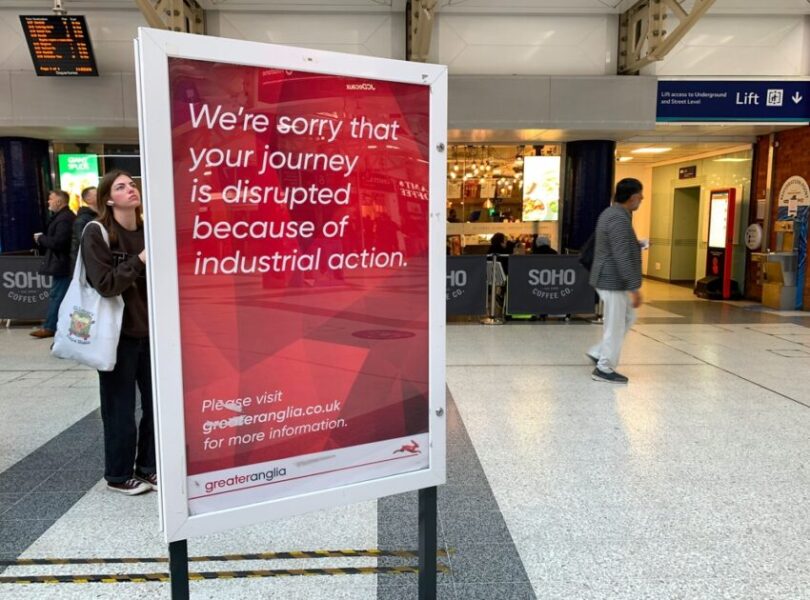
Plans for minimum service levels during rail strikes could worsen industrial relations and outcomes for passengers, train operators have told MPs, while unions said the proposed laws were a “recipe for disaster”.
Legislation that would force some staff to work during strikes is going through parliament, sponsored by the business secretary, Grant Shapps.
Questioned by the transport select committee, Mick Lynch, the general secretary of the RMT union, said the proposals in the strikes (minimum service levels) bill were “not going to work”. He said the draft legislation, now in the House of Lords, would leave employers in an “invidious position” of having to sack workers who refused to break a strike.
“It will be unsafe,” Lynch said. “Conscripting people to go past their own picket lines and operate complex signalling systems or drive a train is a recipe for disaster.”
The measures contained in the bill would give ministers powers to decide minimum service levels during strikes in parts of the public sector, including schools, health and emergency services as well as rail.
Rail bosses and union leaders told MPs that in many places a significant proportion of staff across different parts of the railway would be required to work, even to operate a small number of trains.
Managers at the train operators said it was unclear what service they would be expected to run, whether priority routes or a proportion of the timetable.
Jamie Burles, the managing director of Greater Anglia, said the plans could exacerbate issues affecting industrial relations today, with unions still in dispute after almost a year of strikes.
He said it would be “incredibly important that there was absolute clarity over the policy and legislation and the requirement on employers and employees … [or] one of the unintended consequences would be further conflict or stress on the relationship”.
Tom Joyner, the managing director of Cross Country Trains, said he did not know of anyone in rail who had asked the government to bring forward legislation on minimum levels of service.
Lynch said any minimum service laws that Shapps referred to in Europe were “honoured in the breach”, and had led to more wildcat strikes and “novel forms” of action, such as walkouts and occupations.
Mick Whelan, the general secretary of the train drivers’ union, Aslef, said the government was looking to introduce “something fundamentally different” that did not exist in other democracies, “affecting the right to strike”.
He said it would breach human rights but would also be a safety issue: “Forcing people to go to work when their colleagues aren’t at work will bring pressure on them that will make it inherently unsafe.”
Lynch said that no one yet knew how it could work, and “the people in charge” seemed to have the “least idea”, adding: “It will poison industrial relations. If they sack signallers, we’ll be in absolute crisis, it will be a permanent disruption.
“We’ll have a P&O situation where everyone’s getting sacked, because they won’t break their own strikes … We will have a strategy of non-compliance, because it’s an unjust law.”